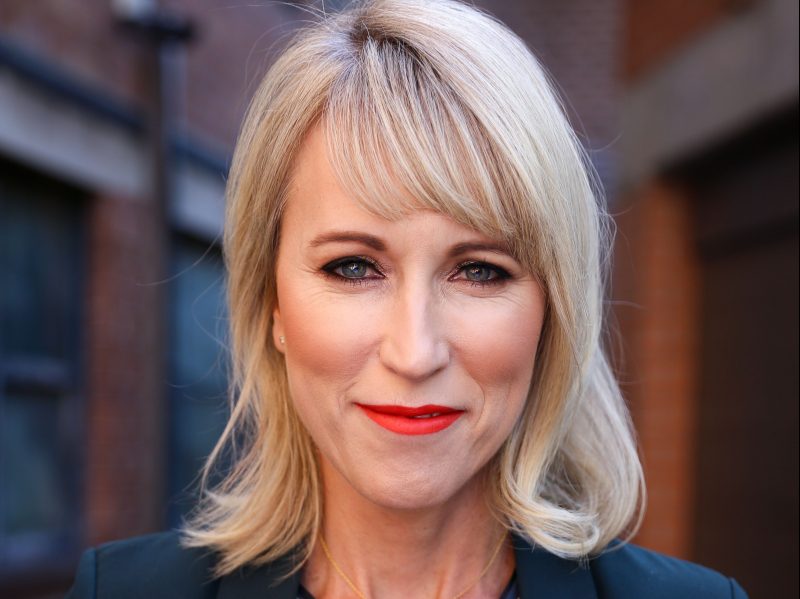Advertisers are leaving influencers to fend for themselves, and it’s not good enough
Brands aren’t taking responsibility for influencer content and instead are expecting social media platforms to be the police force for the industry, according to Social Soup’s Sharyn Smith. And it needs to stop.
This week, the Australian Association of National Advertisers (AANA) is calling for feedback on new ethical guidelines for advertising, including influencer marketing.
There has been a lot of mudslinging in recent months around influencer marketing. Driven by ‘famous’ faces that have shown the worst side of a legitimate industry, influencers and those that support them have been getting a bad rap. But this sensationalist debate distorts reality. It focuses on a few bad eggs rather than the thousands of influencers who are effective advocates for brands finding it difficult to reach and connect with their customers. And I believe it’s some of these very brands that are causing a lot of the reputational damage.
While the advertiser is directing large amounts of marketing dollars towards this channel, many are simply hiding in the shadows, evading their responsibility.

This is simply wrong and it needs to change. Across every other marketing discipline where there is a paid relationship, brands clearly endorse that they have chosen to engage with their current or potential customers in this way. Why is it different when it comes to influencer marketing, where brands leave influencers to fend for themselves or expect the social media platforms to be the police force for the industry?
The industry needs to exert stronger pressure on those advertisers to take more responsibility for disclosure and not leave it up to the influencer.
A critical element of transparency is around the control advertisers have on the content produced by influencers on their behalf. If there is any level of control, the brand needs to disclose its involvement.
Unsurprisingly, many brands are nervous about the negative impact that disclosure may have. Yet research shows that this isn’t the case and often there is an increase in trust as a result of disclosure.
Regardless, this type of authenticity and transparency around influencer marketing is a collective responsibility.
We need to balance the responsibility and advertisers need to work with their influencer agencies, the influencers themselves, social platforms, and industry bodies on how this disclosure should look and where it should be placed to ensure it is visible and clear.
This includes becoming involved with the newly formed AIMCo (Australian Influencer Marketing Council) to develop clear guidelines on disclosure.
There are many brands that have embraced the relationship with influencers and proudly demonstrated their commitment to transparency through the campaigns they have run. We need more to follow their lead.
It’s time for all parts of the influencer marketing industry to come together. Without this shared responsibility, the perpetual cycle of bad news stories will continue and influencer marketing as an important channel will fail to see its value recognised.

Sharyn Smith is the founder and CEO of Social Soup
Sharyn Smith will be leading a Mumbrella Masterclass workshop on influencer marketing in both Sydney and Melbourne next month. The interactive session will help you and your company, build a business case for influencer marketing and measure real business results, while discovering how to match your brand and objectives to the right influencers. Book your tickets here.



Probably because no-one in their right mind wants to admit using an influencer.
TL;DR: influencers are inherently unreliable and largely unwanted.
Gee… I’m not sure I could have written a better satirical piece than this as to why ‘influencers’ are a dubious pile of tosh.
They (influencers) have always been used by brands, its just now that social media has narrowed everyone’s attention span and the name influencer is upon us that we are discussing.
If consumers don’t know or realise that influencers are getting paid to promote brands, products or ideas, regardless whether they use these said brands products….then they clearly have not been paying attention
Hi Dan/Ye Gods…..There are certainly influencers of questionable value but the good news is as an industry we have good visibility of this through first party data and advanced bot detection and fake followings. However, a few bad eggs should not devalue the genuine influencers who have grown an engaged following through meaningful interactions. These influencers when well matched with a brand and aligned on purpose and objectives working in true partnership to create valuable audience interactions will deliver incredible impact no other media can match. They are only unreliable if you treat them in a transactional way and fail to build a relationship.
I really struggle to see the point of this piece.
It’s not advertisers responsibility to sort out what is one of the most complex and abstract forms of advertising that exists today.
Regulation is nearly impossible, because in many circumstances there is no clear distinction between what is paid and what is not. Eg. a YouTube/Facebook video satirist may incorporate something for a paying brand that the audience has no idea about and most people wouldn’t be able to point out the paid element.
You’re also forgetting the point that advertisers don’t want disclosure around influencer marketing, because this automatically screams “advertising”, rather than the more subtle approach it has been for many years. Why would advertisers put an effort into promoting content/collaborations as paid ads? They won’t.